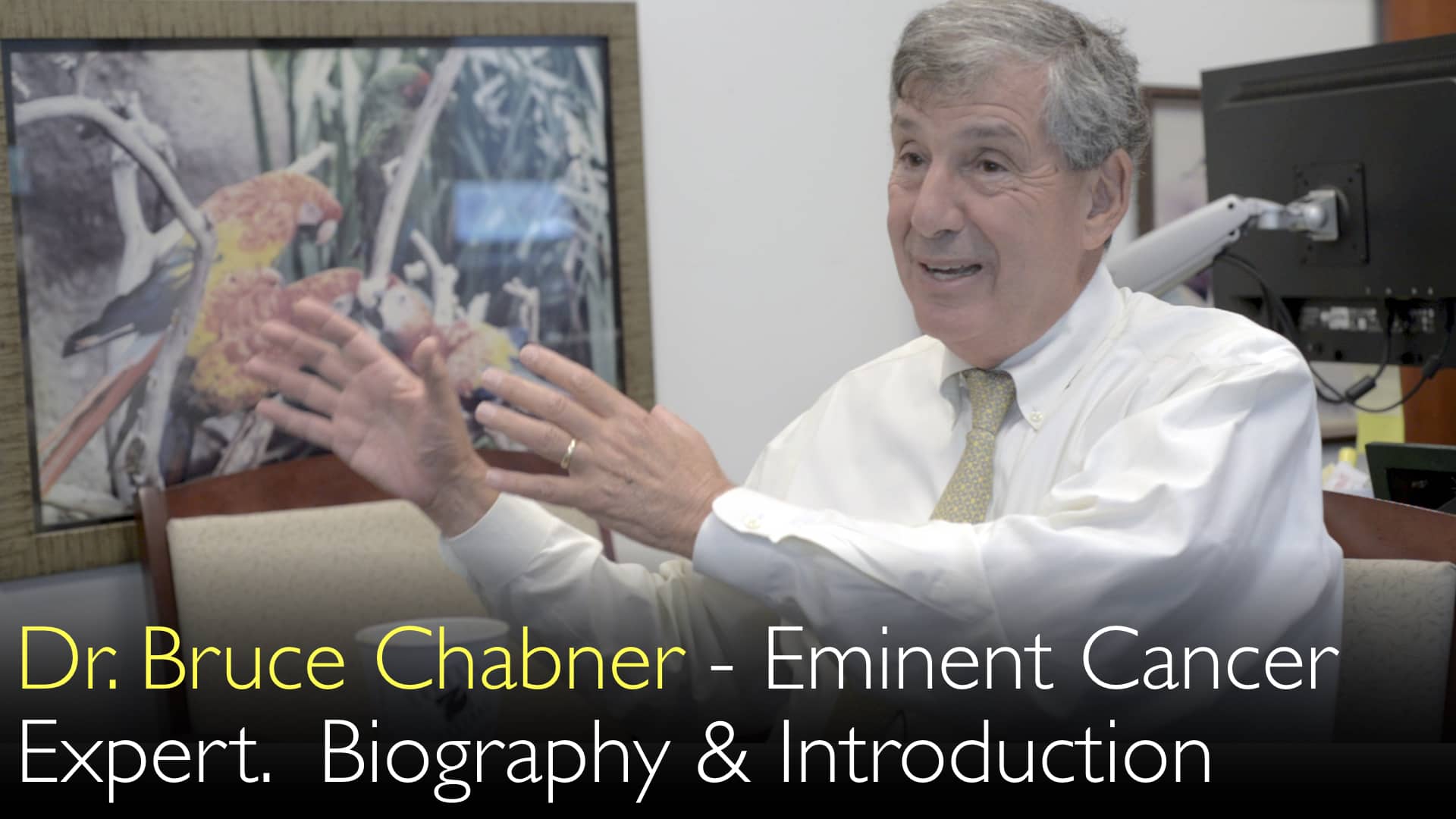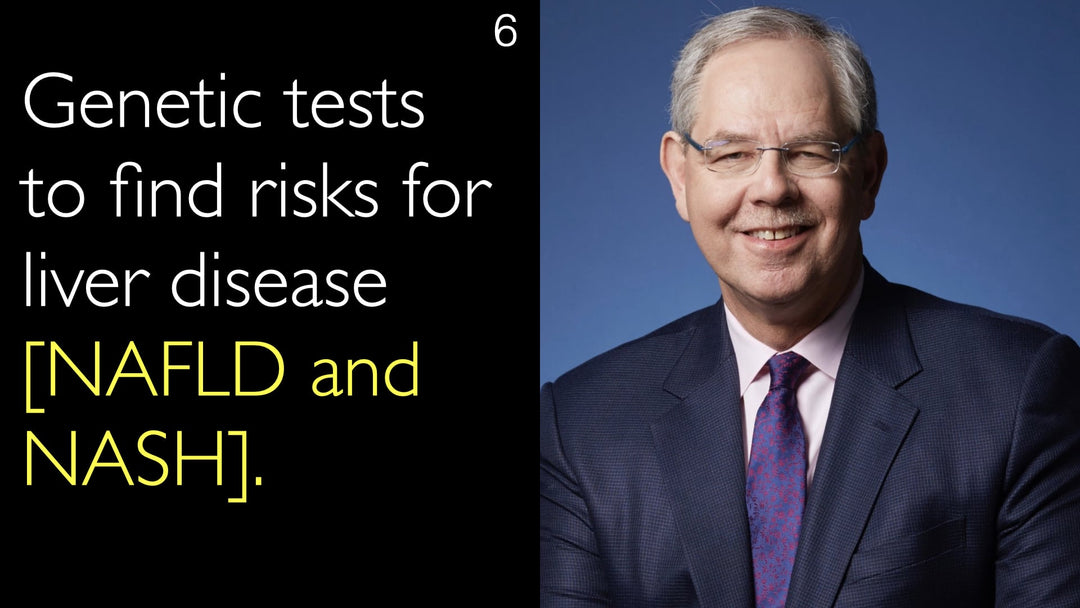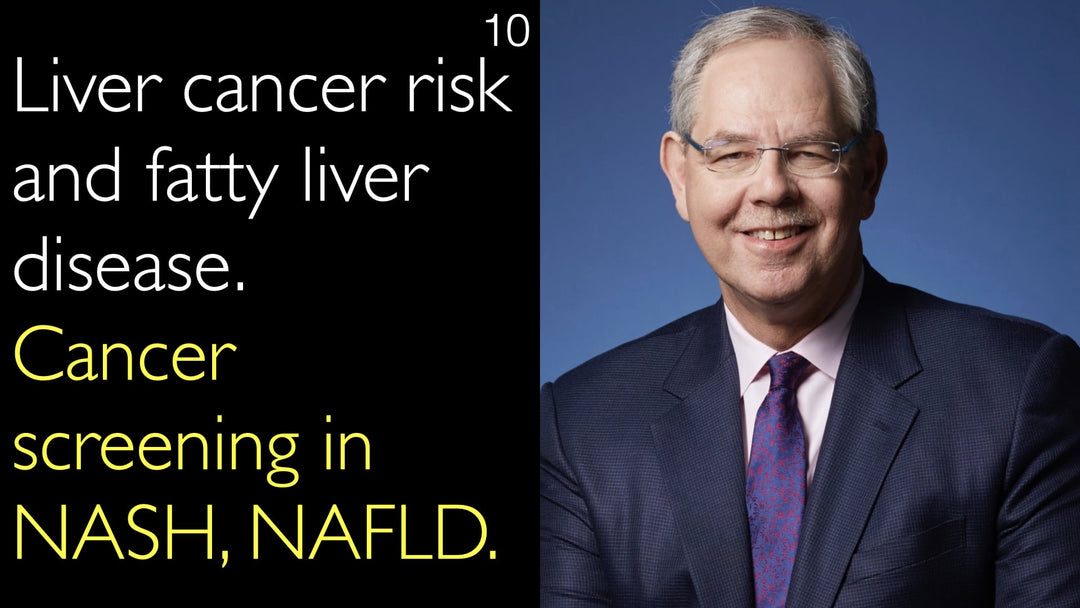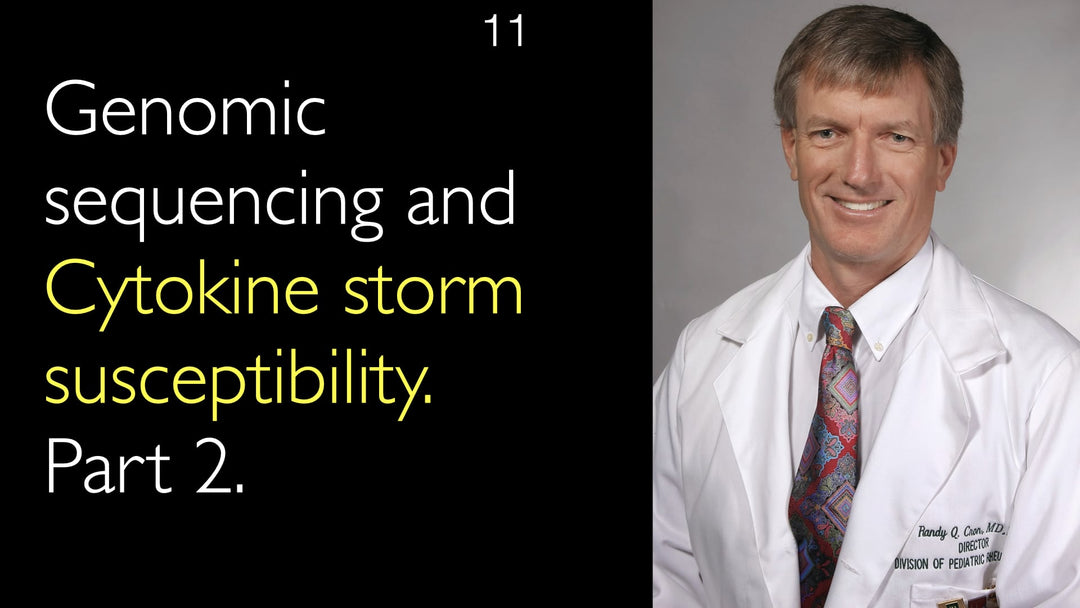Leading expert in medical oncology, Dr. Bruce Chabner, MD, explains the evidence and risks behind using statins, aspirin, and metformin for cancer prevention, detailing the S.A.M. strategy's potential to reduce cancer incidence while emphasizing the critical need for personalized risk-benefit analysis due to medication side effects.
Cancer Prevention Medications: Evaluating the S.A.M. Strategy
Jump To Section
- S.A.M. Strategy Explained
- Aspirin for Cancer Prevention
- Metformin and Cancer Risk
- Statins: Mixed Evidence
- Medication Side Effects
- Personalized Prevention Approach
- Future of Prevention Trials
- Full Transcript
S.A.M. Strategy Explained
The S.A.M. strategy represents a promising pharmacologic approach to cancer chemoprevention, combining three widely used medications: Statins, Aspirin, and Metformin. Dr. Bruce Chabner, MD, a renowned medical oncologist, discusses this concept with Dr. Anton Titov, MD, noting that while evidence is strong in some areas, it remains controversial and requires careful patient selection. Each component of the S.A.M. strategy has a different mechanism of action and level of supporting data for reducing cancer risk.
Aspirin for Cancer Prevention
Aspirin has the most robust evidence among S.A.M. medications for cancer prevention, particularly for colorectal cancer. Dr. Bruce Chabner, MD, confirms that aspirin is clearly an important cancer medication, with data showing it reduces the incidence of colon cancer and potentially other tumor types. The anti-inflammatory properties of aspirin are believed to contribute to this protective effect. However, Dr. Bruce Chabner, MD, emphasizes that aspirin carries risks, including increased incidence of gastrointestinal bleeding, stroke, and brain bleeds, which must be balanced against potential benefits.
Dr. Anton Titov, MD, adds an important clinical nuance, pointing out that the risk of gastrointestinal bleeding from aspirin is correlated with H. pylori infection. Screening for and treating this common infection can significantly reduce bleeding risk, making aspirin prevention safer for selected patients. Dr. Bruce Chabner, MD, agrees, noting that a quarter of the usual aspirin dose appears effective for cancer prevention, highlighting the importance of dosage considerations in chemoprevention strategies.
Metformin and Cancer Risk
Metformin presents a fascinating avenue for cancer prevention through its effect on insulin metabolism. Dr. Bruce Chabner, MD, explains that metformin lowers insulin levels, and since insulin is implicated in accelerating cancer growth, reducing insulin could potentially slow cancer development. While Dr. Chabner doesn't believe metformin prevents cancers from forming, he suggests it could slow the growth of existing microscopic cancers, delaying their clinical presentation.
This mechanism makes metformin particularly relevant for cancers associated with metabolic syndrome and insulin resistance. The discussion between Dr. Bruce Chabner, MD, and Dr. Anton Titov, MD, underscores that metformin's potential cancer protective effects represent an exciting off-label use of this common diabetes medication that warrants further investigation through clinical trials.
Statins: Mixed Evidence
Statins have the most controversial evidence among the S.A.M. medications for cancer prevention. Dr. Bruce Chabner, MD, acknowledges that data is mixed, with some studies suggesting reduced incidence of gastrointestinal cancers among statin users, while other trials have found no protective effect. The potential mechanisms include statins' anti-inflammatory properties and their effect on the vascular endothelial wall, which might influence tumor microenvironment.
Despite theoretical rationale, Dr. Bruce Chabner, MD, remains unconvinced that patients should take statins specifically for cancer prevention, though he acknowledges their established benefits for cardiovascular disease. Dr. Bruce Chabner, MD, emphasizes that statins carry their own risks, including potential liver injury and muscle damage, which must be considered when evaluating their use for chemoprevention.
Medication Side Effects
All cancer prevention medications carry potential side effects that necessitate careful risk-benefit analysis. Dr. Bruce Chabner, MD, emphasizes that this balance is crucial when considering pharmacologic interventions in healthy individuals. For aspirin, the bleeding risks are significant; for statins, liver and muscle toxicity can occur; and even metformin has gastrointestinal side effects that may limit tolerability.
Dr. Bruce Chabner, MD, explains that patient selection is paramount, as certain individuals with specific risk factors (such as family history of bleeding disorders or H. pylori infection) may be unsuitable candidates for particular prevention medications. This personalized approach ensures that the potential benefits outweigh the risks for each individual patient considering chemoprevention strategies.
Personalized Prevention Approach
Personalized medicine principles apply equally to cancer prevention as they do to cancer treatment. Dr. Bruce Chabner, MD, emphasizes that cancer prevention is not a "cookie-cutter approach" where everyone receives the same medications. Instead, prevention strategies should be tailored based on individual risk factors, genetic predisposition, and personal medical history.
Dr. Anton Titov, MD, and Dr. Bruce Chabner, MD, discuss how genetic testing and family history assessment can identify high-risk populations who might benefit most from chemoprevention. For hereditary cancer syndromes like those associated with breast and colon cancer, targeted prevention with medications might be particularly effective. As genetic testing becomes more accessible and affordable, personalized cancer prevention will likely become increasingly sophisticated and effective.
Future of Prevention Trials
Research into cancer chemoprevention faces significant challenges that impact the development of new strategies. Dr. Bruce Chabner, MD, explains that prevention trials require long follow-up periods since the endpoint is improving cancer survival, which is a multi-year process. These lengthy trials make it difficult to quickly demonstrate benefit and bring new prevention options to patients.
Despite these challenges, Dr. Bruce Chabner, MD, remains optimistic about the field's future, particularly as we better understand cancer biology and identify high-risk populations that stand to benefit most from interventions. The conversation with Dr. Anton Titov, MD, concludes that while the S.A.M. strategy shows promise, more research is needed to definitively establish which patients should receive which medications at what doses for optimal cancer risk reduction.
Full Transcript
Dr. Anton Titov, MD: Cancer prevention by medications has strong but controversial evidence. What does an eminent cancer expert think of aspirin, statins, and metformin to reduce risks of cancer? Chemoprevention of cancer includes the so-called S.A.M. strategy: Statins, Aspirin, Metformin.
I discussed chemoprevention with several prominent cancer experts, including prostate cancer experts. For example, Jack Cusick in London called Aspirin the "#2 most important step after not smoking in cancer prevention." What is your view on using pharmaceuticals in preventing or reducing risks of cancer? Maybe Metformin or Aspirin? Cancer prevention by statins, possibly?
Statins have a very different track record, but nevertheless there is some data on statins against cancer. What is your view on pharmaceuticals in cancer reduction and prevention?
Dr. Bruce Chabner, MD: I have several different thoughts about that. Aspirin is clearly an important cancer medication not only for cardiovascular prevention but also for colon cancer. Aspirin might prevent other tumors as well. There's evidence that aspirin intake reduces the incidence of other kinds of cancer, although I think the most impressive data is for colon cancer.
Metformin is a very interesting cancer medication. It lowers insulin levels, and we know that insulin is implicated in accelerating the growth of cancers. So it is very possible that Metformin use could lead to a reduced incidence of clinical cancers. I don't think it will prevent cancers, but I think metformin could potentially slow the growth of cancers.
I am less familiar with statins. I know the data is mixed on statins against cancer. Some clinical trials with statins indicate a lower incidence of GI cancers and colon cancers, while others have not found that to be true. I think the story is still out, so I'm not convinced that we need to take statins to prevent cancer.
Obviously statins help with heart disease. Statins are also anti-inflammatory; they reduce inflammation. We know inflammation can accelerate cancer too, so there's rationale there to use statins. But it isn't clear that patients who take statins will actually prevent a significant number of cancers.
Dr. Anton Titov, MD: I think one of the problems with cancer prevention and pharmacologic interventions is that all cancer medications have side effects. The cancer medications that are used to treat cancer—so you have to look at the balance between how much good is done, how much benefit there is, and how much risk is involved.
For aspirin, for example, there's an increased incidence of stroke, gastrointestinal bleeding, and brain bleeds. So there's always this balance between benefit and risk that has to be taken into account. The same thing with statins: some patients develop very serious liver injury and muscle injury just taking normal doses of statins, so it's not without some risk.
Dr. Bruce Chabner, MD: So you have to really look at the data. The data has to be very strong and actually prove that statins are useful. But I think in general it's a very promising field. It takes a long time to do these clinical trials; we do many of them. The endpoint is actually improving patient survival from cancer, which is a multi-year process. So it's not easy to actually show that you've done some good.
Dr. Anton Titov, MD: It's also interesting that with Aspirin, the risk for gastrointestinal bleeding is also correlated with H. pylori infection. Many patients don't know about it, so by screening for H. pylori you can actually reduce the risk of gastrointestinal bleeding. It's a treatable infection.
Dr. Bruce Chabner, MD: Yes, certainly the presence of ulcers is a risk factor. You're correct. So in certain patients, cancer medications for cancer prevention may be very effective; in others, cancer prevention medications could be dangerous.
People may have a family history of amyloid degeneration in the brain. For example, in my own family, my mother had several strokes of this kind. This puts patients at increased risk of stomach bleed or brain bleeding. That would be another factor to take into consideration.
Again, careful selection of patients is key. It is not a cookie-cutter approach. Cancer prevention is not "everything for everyone."
Dr. Anton Titov, MD: We have to select a personalized medicine approach. Yes, personalizing cancer prevention to a certain extent. For statins, some clinical trials are interpreted to show that it is the low dose of statins that is active enough on the vascular endothelial wall, which might be responsible for a significant positive anti-tumor effect.
Dr. Bruce Chabner, MD: Or it could be the anti-inflammatory effect of statins that's important. Yes, the doses are important. For aspirin, it's a quarter of a usual dose that's effective for preventing cancers.
So I think one of the important points to make is that in the future we may be able to personalize the cancer prevention dose of cancer medications. We have to test the genetics. For tumors that are inherited for a variety of reasons—breast cancer or colon cancer have genetic influence—it may be possible to pick out the susceptible population.
Dr. Anton Titov, MD: You can target your prevention cancer medications to those patients. That is a very important point. Genetic tests are reduced in price and their availability increases, but you also need a careful selection based on the family history of cancer.
Dr. Bruce Chabner, MD: Correct! Exactly, exactly.








